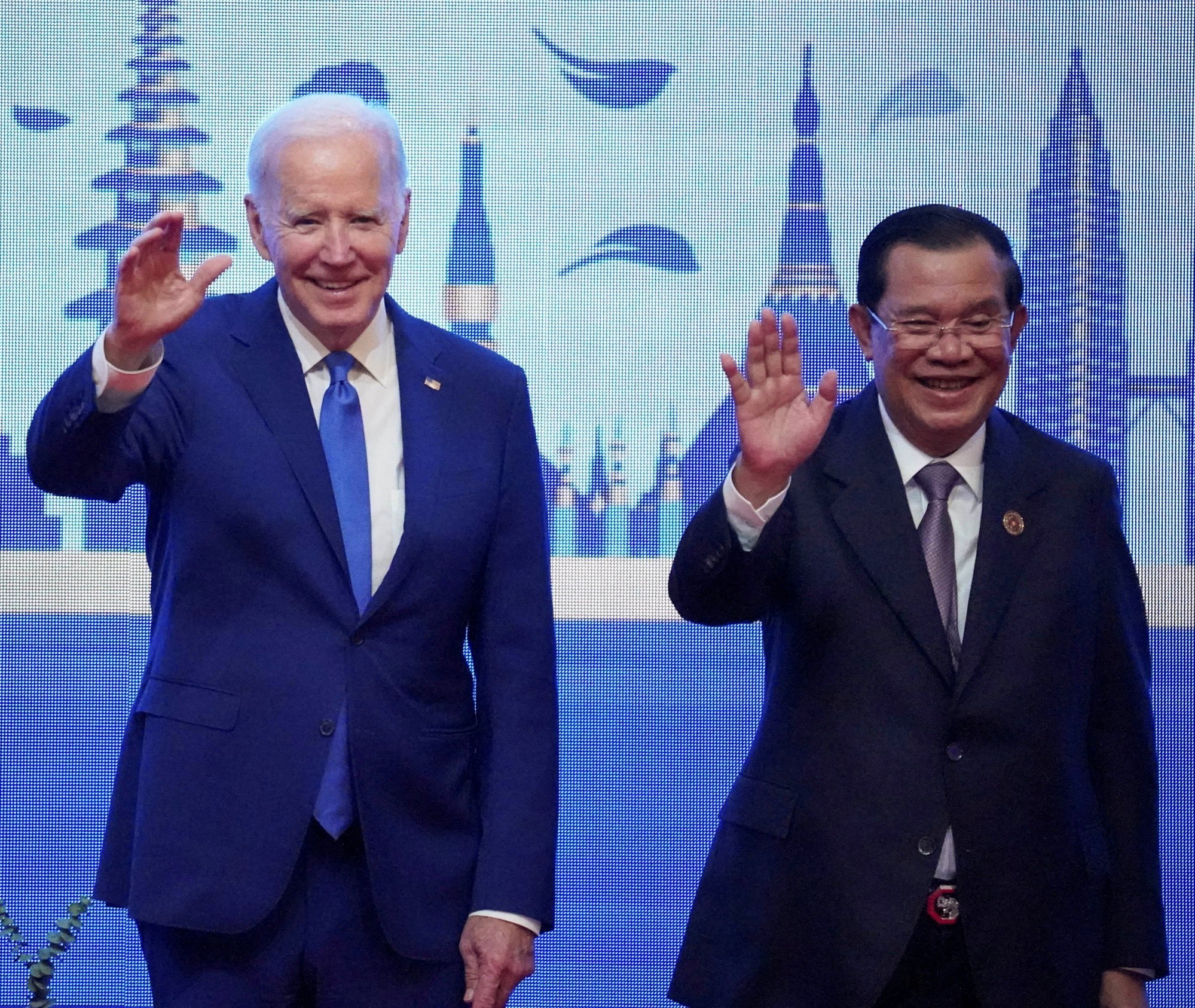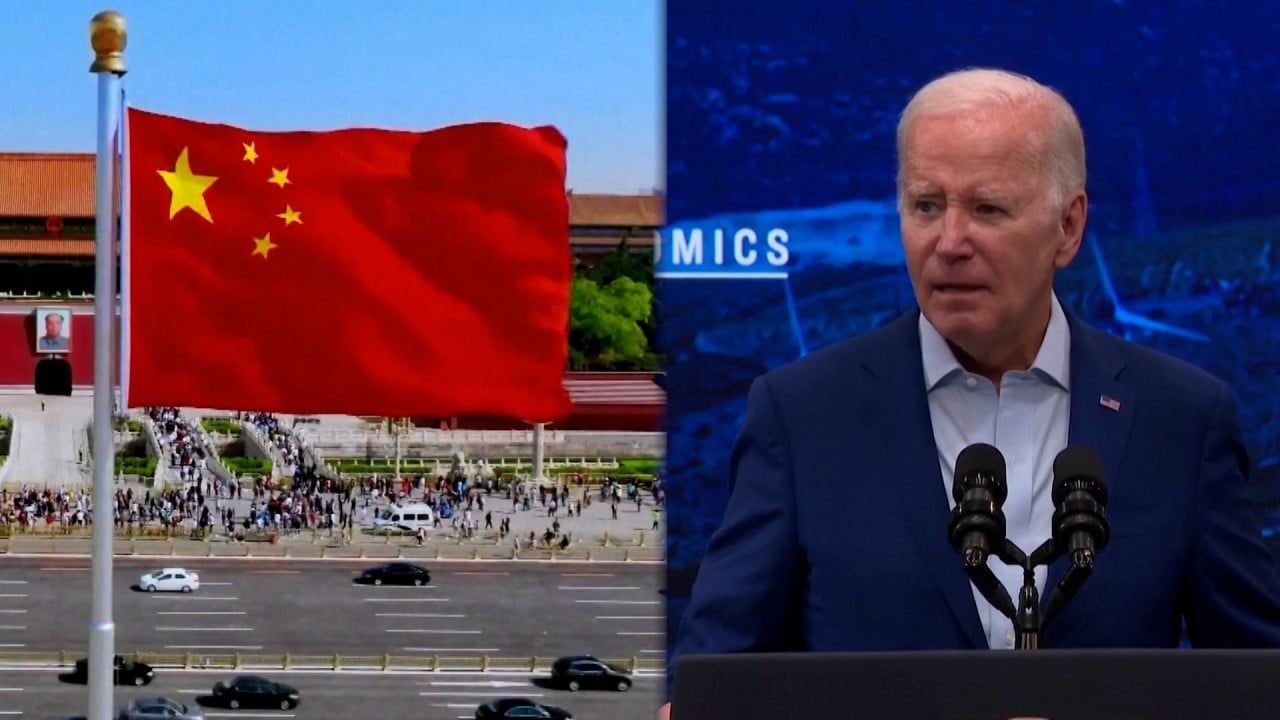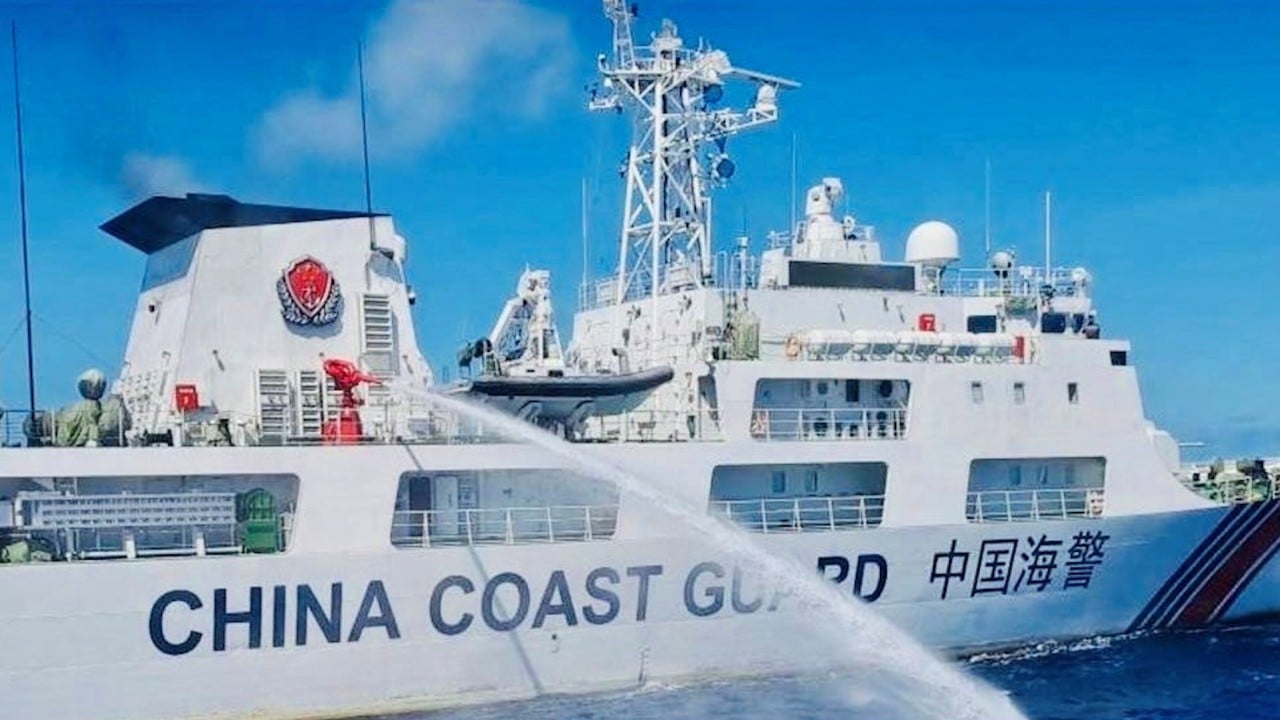In a move that could further rattle Beijing, it has also been reported that Biden will visit Hanoi next month to bolster ties with Vietnam.
Politico cited three sources as saying the two former wartime foes are expected to upgrade their relationship to a strategic partnership during the visit, which is likely to take place in mid-September.
Advertisement
The partnership would see priority “given to enhancing bilateral trade and investment, including e-commerce and the digital economy, and building robust supply chains through ‘friend-shoring’”, according to Carl Thayer, an emeritus professor at the University of New South Wales in Australia who specialises in Vietnamese affairs.
“Privately, China’s leaders will have to reassess whether their step up in pressure against Vietnam and the Philippines in the South China Sea this year was counterproductive,” he said.
Advertisement
“This reassessment is now all the more urgent following the US-Japan-South Korea trilateral summit and the impending elevation in US-Vietnam relations.”

Advertisement
“However, in order to avoid irritating its neighbour in the north, Vietnam will be cautious in its rhetoric but spare no efforts to support ‘Asia’s Nato’ through practical actions,” Zhang said.
In a joint statement after the Camp David meeting, the three countries reaffirmed their support for the central role played by the Association of Southeast Asian Nations, but also went further in criticising China’s “dangerous and aggressive behaviour supporting unlawful maritime claims” in the South China Sea.
Advertisement
Chen Xiangmiao, a research fellow with the National Institute for South China Sea Studies in Hainan, said the strategic coordination between the US, Japan and South Korea could have an impact in the South China Sea.
There could be an “encouragement effect” to rival claimants in Southeast Asia, Chen said.
“[The Camp David summit] also sent a signal to Southeast Asia’s claimants there are many supporters to their claims and these countries may contend against China,” he said. “Increasingly, eyes would be turned to the South China Sea and more external powers, such as Australia, Canada and Europe would join, adding more uncertainties in the region.”
Advertisement
But Chen said Beijing is unlikely to bow to pressure.
“I don’t think there’s any room for China to pull back any more, unless it allows all the uninhabited islands to be occupied by other countries, which is impossible.”
Amid hostile competition between China and the US as well as the prolonged Ukraine war, countries in the region are facing an “increasingly polarised environment” that has forced them to adjust their foreign policies, Thayer said.
In December, Vietnam elevated its relationship with South Korea to a comprehensive strategic partnership, on a par with Russia, India and China, and it is expected to upgrade its ties with Australia to the same level.
“It is not coincidental that South Korea and Australia are treaty allies of the United States. South Korea’s importance is enhanced by the recent trilateral summit with Japan and the US,” Thayer said.
Advertisement




